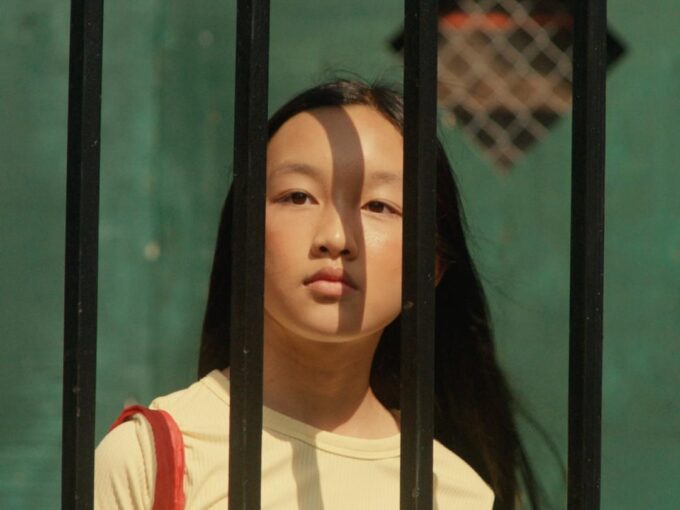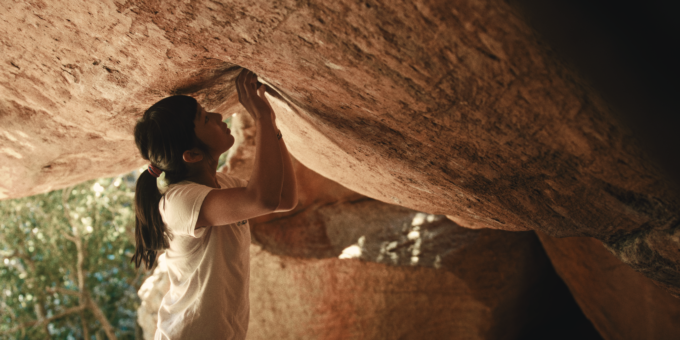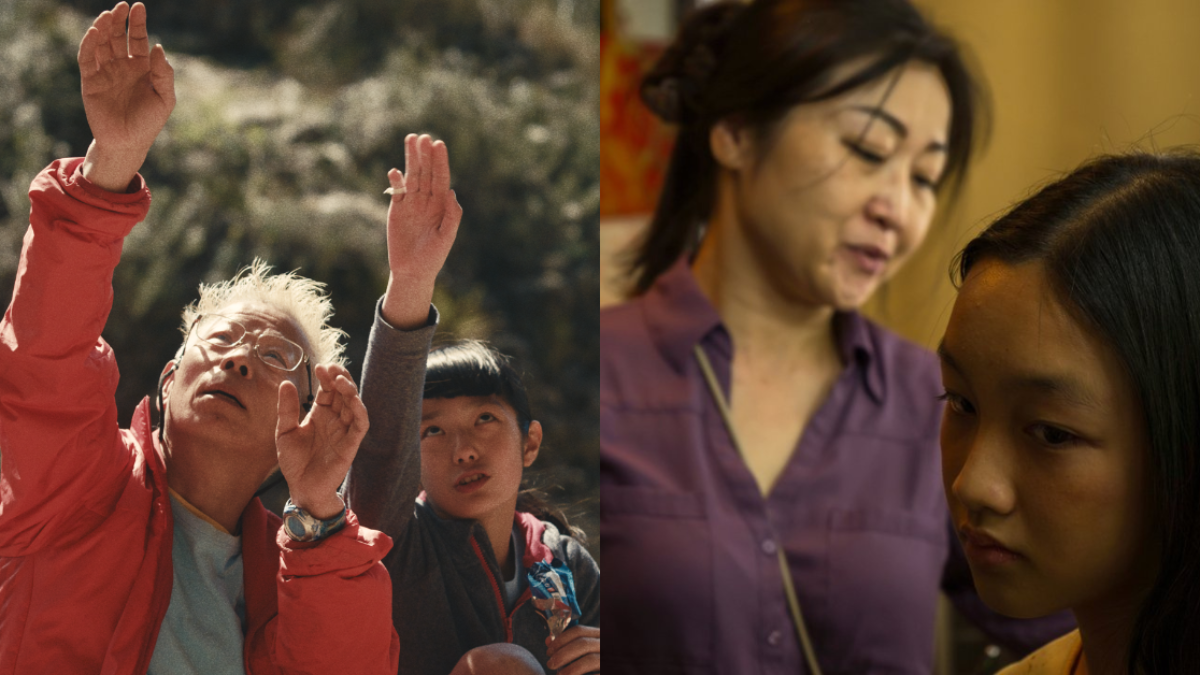KENJI TSUKAMOTO’S ‘ASHIMA’ AND HOLLY M. KAPLAN’S ‘SUNFLOWER GIRL’
As one might expect, all of our selections at the Asian-American International Film Festival cover a wide range of perspectives across various diaspora – from men and women, to the very young and the very old. However, a couple of #AAIFF47 selections – Kenji Tsukamoto’s “Ashima” and Holly M. Kaplan’s “Sunflower Girl” – seek to center their stories on young girls in the throes of those tender in-between years, as they straddle their two seemingly disparate cultures in ways both big and small.
As part of the festival’s ‘Documentary Features’ lineup, “Ashima” introduces us to rock climbing prodigy Ashima Shiraishi, as she embarks on reaching an elite level in her sport. Shot during Shiraishi’s preteen years, we watch as she navigates various day-to-day obstacles – from vacillating between public and private life, to bridging her Japanese heritage with her American upbringing. Similarly, “Sunflower Girl” – an official short film selection under our ‘How to Live as an Asian Woman’ program – depicts its own coming-of-age story through the eyes of Rosie, a young skateboarder who has to choose between spending a day with her fellow skater crush and her responsibilities as an older sister.

“Your family is your strength and your weakness,” Rosie says to us in a voiceover at the beginning of “Sunflower,” and while this much is true for many first-gen immigrants, this is especially the case for our two films’ leads. For the film’s titular character – beautifully rendered by young actress Malea Emma Tjandrawidjaja, previously seen in “After Yang” (2021) – there is an inward push-and-pull between her two selves. In fact, a lot of code-switching happens for the girls in both films – outside of her family, Rosie goes by her Americanized name instead of her Chinese name, Kui; meanwhile, Shiraishi often switches between English and her native Japanese with as much ease as she takes to bouldering.
Other dichotomies begin to emerge, most notably in the public and private selves Shiraishi vacillates between as we follow her along the competitive rock climbing circuit, fielding press emails and interactions with young fans. To navigate such a journey, all while transitioning from childhood to teenhood, is a task that seems just as insurmountable as the V14, a difficult grade level in bouldering that Shiraishi aims to accomplish. “When you’re that age,” stated filmmaker Kaplan, “everything feels really high stakes. Every decision is so weighty.” When that’s the case, sometimes family really is all you can count on.

A particular set of scenes where Shiraishi and her father are in Rocklands, South Africa – where she makes several attempts at her V14 – illustrate this beautifully. They spend a few days at Golden Shadow, the famous boulder problem in Rocklands, Shiraishi tackling each grip and foothold with the guidance of her father, Hisatoshi “Poppo” Shiraishi, by her side. Despite this, the young climber can’t seem to get a good grasp at the boulder. With each quick jump-cut of Shiraishi falling off, there’s a growing sense of her mental and physical exhaustion. Yet, interspersed among these are scenes where her father tries to instill some confidence, culminating in a great moment where he encourages her to yell out into the South African void.
Both films strikingly evoke a quiet intimacy with their subjects, honing in on deceptively small moments loaded with huge emotional impact. For “Sunflower’s” Rosie, hers is a more inward struggle. Having promised her mother that she’d pick up her little sister Amy (Abigail Lopez), she does her duty, even though she’d secretly rather spend some time at the skate park with her friends Skylar (Cairo Zion) and Cooper (Daniel Girdo). Pratfalls soon abound here as well, with Amy taking a spill on an unattended skateboard, just as Rosie finally has a moment alone with Skylar. After a momentary pause, she attends to her sister, with Skylar and Cooper leaving shortly thereafter.
It’s a seemingly small victory, but a victory nonetheless. And who better to be in your corner than the ones you love?
“Ashima” and “Sunflower Girl” screened at the 47th Asian American International Film Festival.

